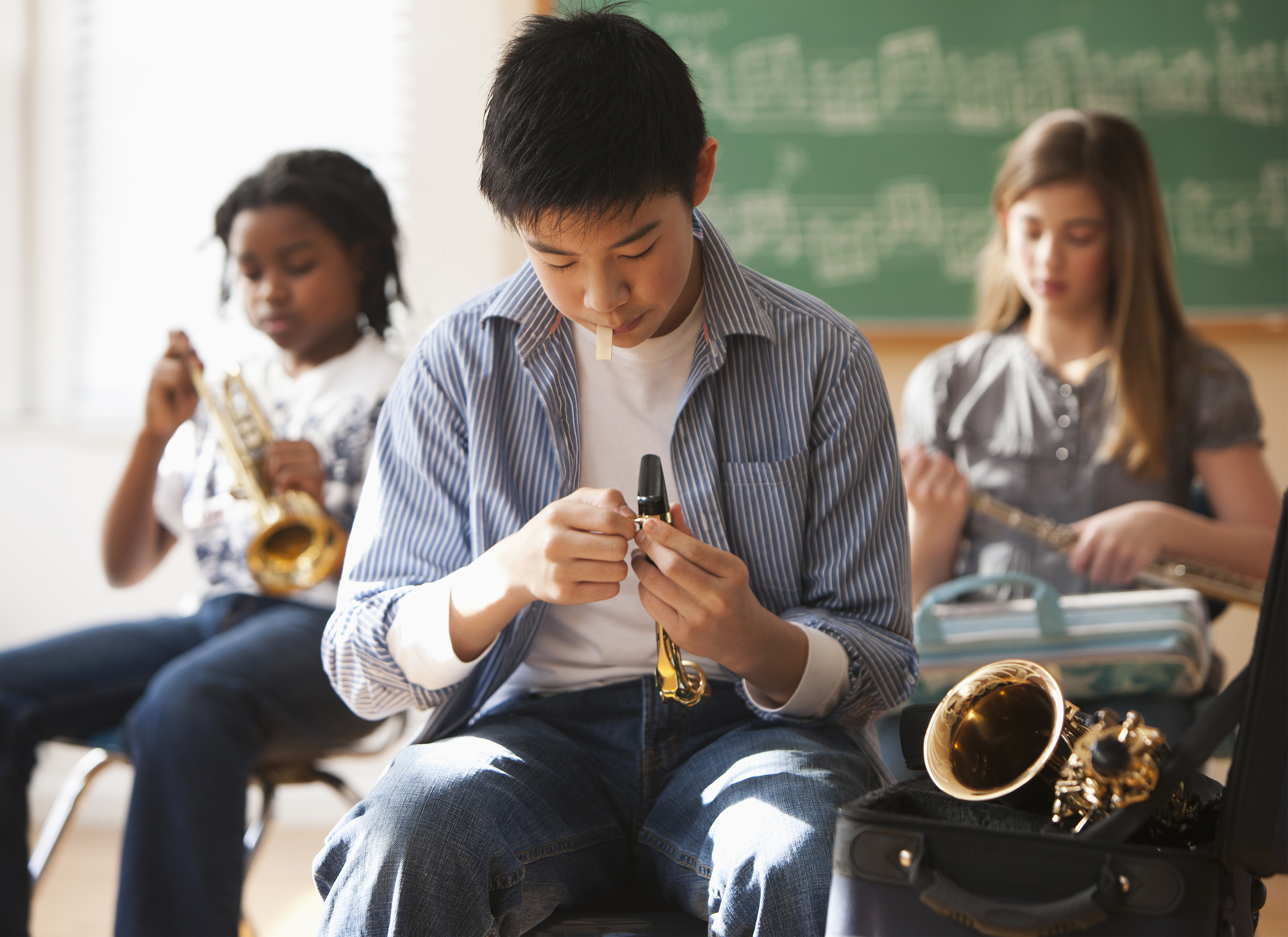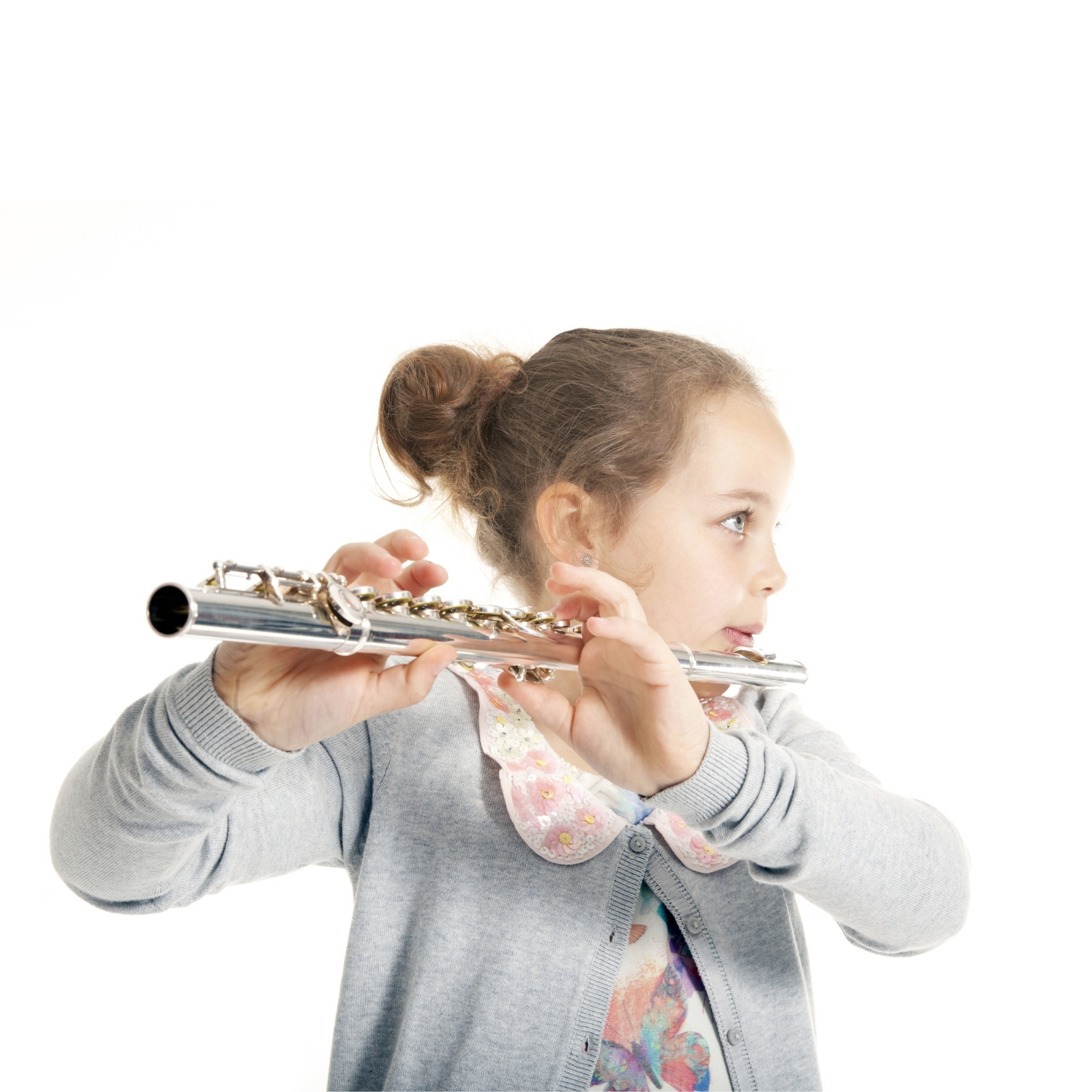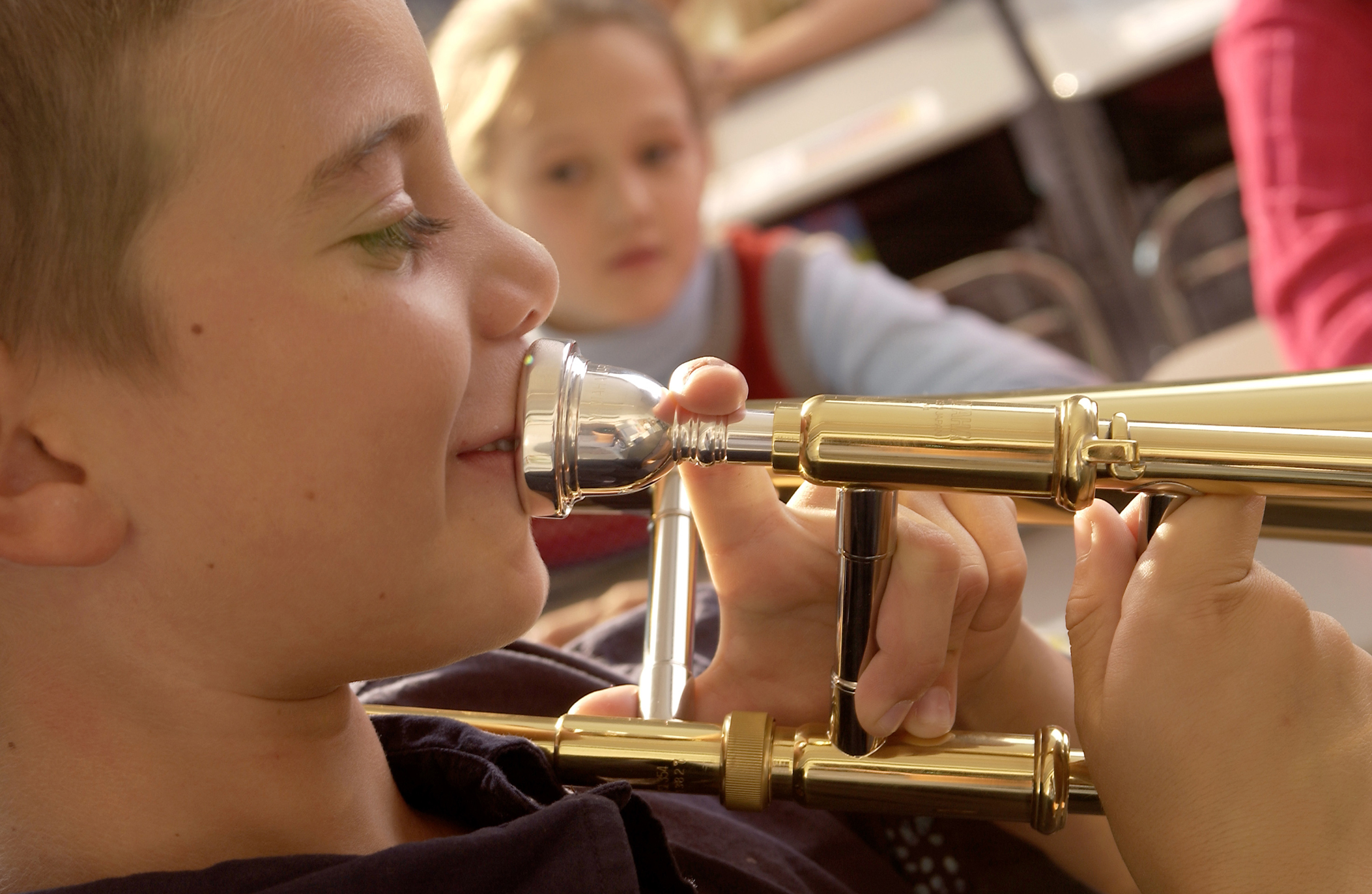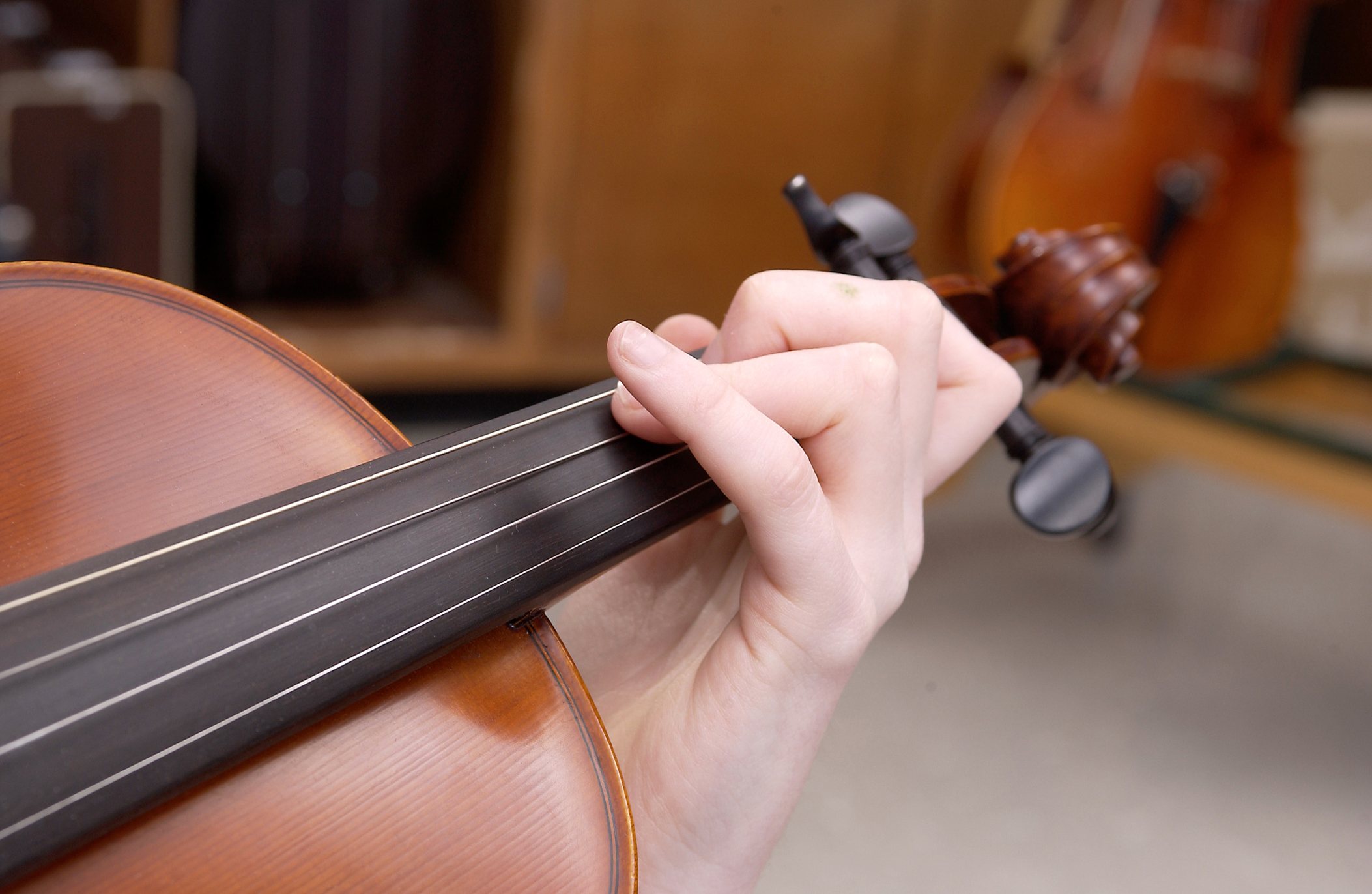
If your child has enrolled in a school band or orchestra, the director has more than likely emphasized the importance of practice.While students have a chance to rehearse with the other members of the ensemble at school, it is also vital to spend time practicing on their own. Solo practice time builds confidence and allows a student time to learn at their own pace.
Practicing is a player's individual rehearsal time outside of group rehearsal. For quality practice time, provide your student with a quiet place where they can focus. This place might be their bedroom, an office, or a spare room where they won't be interrupted. Set up a timer, chair, music stand, and anything else they need to play.
Why is Practice so important?
Practicing will ultimately help a player improve at his or her instrument. It is a chance to focus on complex elements of the music, hone in on specific parts of a piece, and strengthen fundamental music skills. Practice is essential to learning an instrument. Not practicing outside of school band or orchestra may cause the student to feel left behind in class. Playing music should be fun, and this applies to practice time, too. Make sure to encourage them, and don't make practice time stressful.
Beginner Practice Tips
Practicing should be both enjoyable and educational. Here are some tips to get the most out of your practice sessions:

Warm-up
Start every practice session with scales, tuning, and other effective warm-ups. These are all important parts of playing and will help you get better. Scales help prepare for the rest of the practice session by warming up the hand and face muscles.
Repeat!
If your student is struggling with a particular passage, they should repeat it a few times before moving on. Once they have built up good habits down the road, they may repeat one small passage repeatedly until they get it right. This is hard for beginner students, and it's more important that they do their best without stressing about it being perfect.

Slow Down
Suppose your student has trouble playing a passage and keeps stumbling through it while playing it up to tempo. In that case, they are only reinforcing bad habits. Instead, slow it down! Use a metronome and play the passage as slowly as they can. Increase the tempo slowly as they improve, and don't let them get discouraged. Remember: music is fun!
Play Long Tones
For wind instruments, long tones, or long sustained notes, are essential for improving tone quality and clarity in playing. Try playing notes of different registers and focus on keeping the dynamic and tone quality consistent for the entire length of the note.
How often should they practice?
While every school music program and private music teacher will have their own recommendation for how often a music student should practice, work towards making practice something the student does for themselves and their growth as a musician. Be realistic and consistent. The best way for the student to do this is to make practicing a habit.
Plan out practice sessions for the times of day when your student has the energy and focus to devote to practice. The student should block off their schedule for these times. Practicing is an important commitment to their musical journey so they should prioritize their practice time, even if it is only 5-10 minutes.
Your students should try to make a practice schedule and log the time they practice. A practice log will help them feel a sense of accomplishment when they practice and let them see how much progress they have made.
Success just means their best
If your student is new to playing music, practice can seem boring and daunting. Instead of confining themselves to an isolated room to practice scales for five hours, practice sessions should be enjoyable. They can try practicing with friends or playing along with a recording of a piece. The hardest part about practice time for a young student is setting aside the time to get the instrument out and just play.
Each practice session will be different and some days the student will feel more successful or accomplished than others. The most important part of practice is showing up. The student should continue showing up to practice as often as they can and they will reap the benefits in no time!



